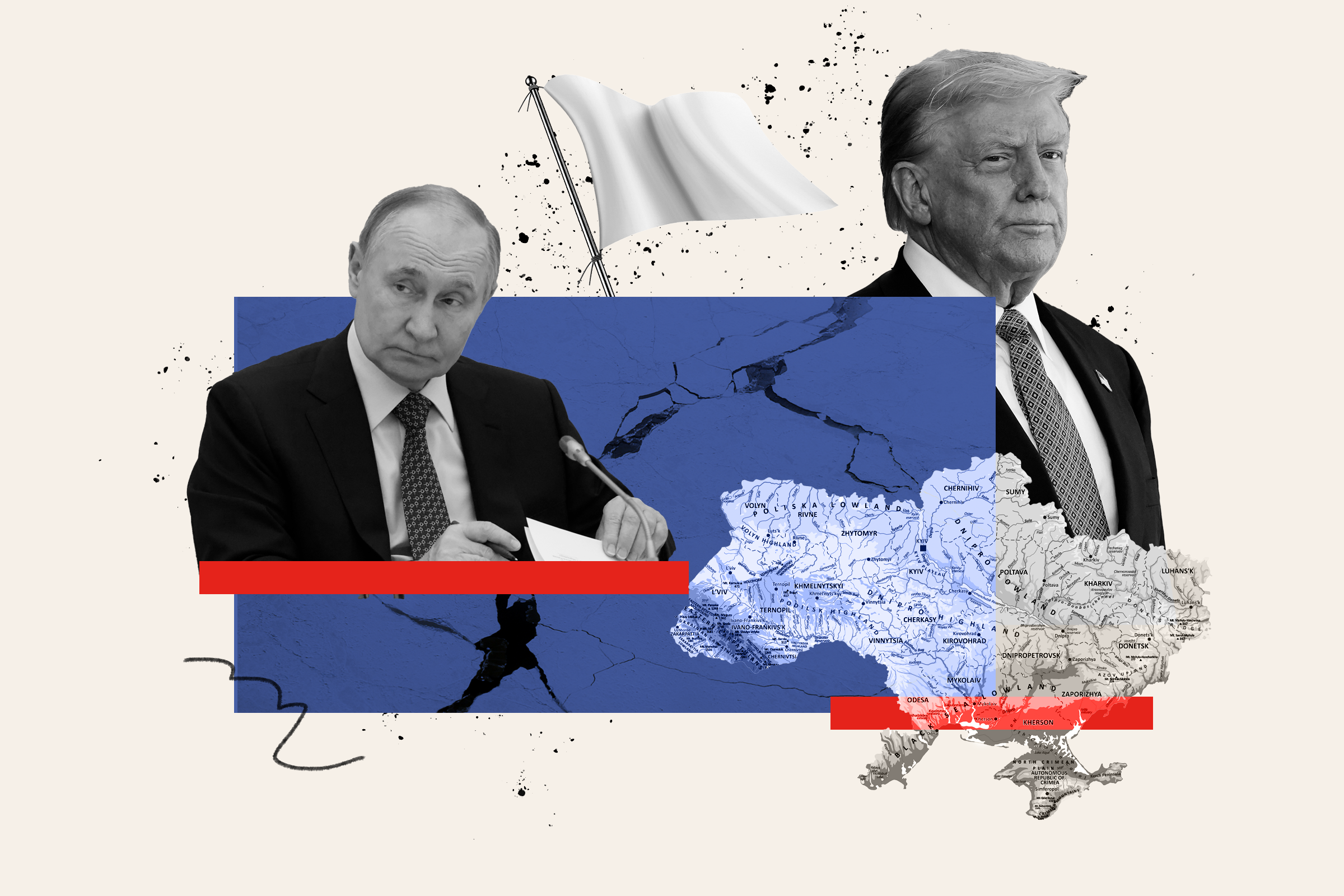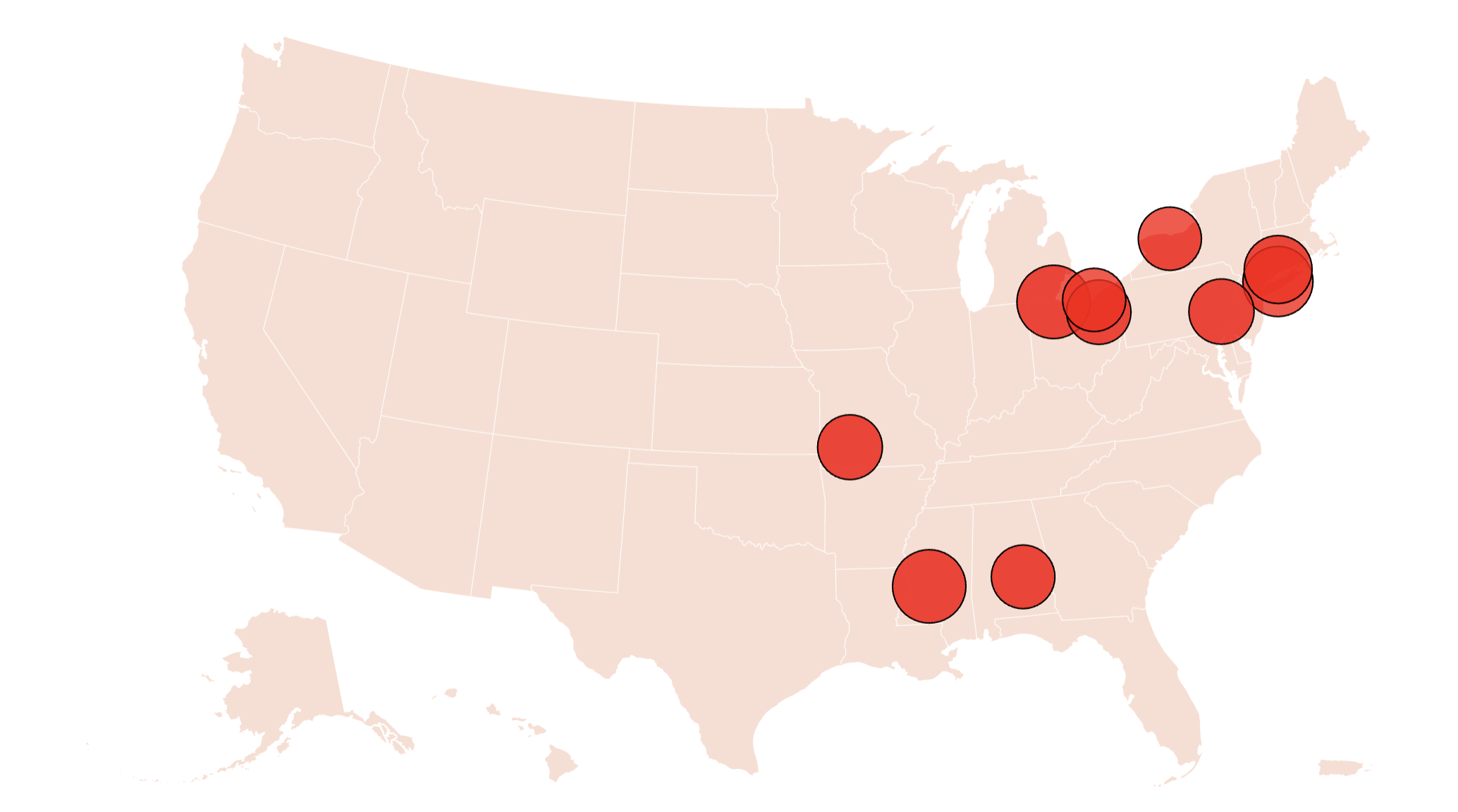🎙️ Voice is AI-generated. Inconsistencies may occur.
NATO member state Lithuania has announced it will place mines along its border with Russia as part of a $1.2 billion defense plan, as fears grow that President Vladimir Putin may seek to expand his war beyond Ukraine.
Newsweek has contacted the Kremlin for comment by email.
Why It Matters
The move marks the latest in a series of measures Lithuania has taken to secure its border with Russia. Last fall, its Defense Ministry said it had installed anti-tank concrete pyramids, known as "dragon's teeth," before a bridge near its border with Russia as part of a "precautionary step to ensure more effective defense."
What To Know
Lithuania's Defense Ministry said in a statement late on Monday that it would allocate around €1.1 billion ($1.2 billion) to "military counter-mobility projects" over the next decade.
It said the greatest focus would be on the country's mine capabilities, with €800 million (about $900 million) planned for their acquisition.
"The development of the Lithuanian Armed Forces' mine-laying capabilities will significantly increase the effectiveness of all other countermobility measures," the defense ministry said.
"Countermobility measures are an important part of our country's defense concept. Thanks to them, the deterrent and defensive potential of the state and the security of the state borders with Russia and Belarus will be increased," the ministry added.
"In the event of aggression, they would allow blocking and stopping the actions of hostile states directed against the Republic of Lithuania."

It comes amid heightened tensions between Russia and NATO due to Putin's war in Ukraine.
Moscow has accused the alliance of involvement in the war by providing Kyiv with military assistance and weapons. Russian officials have regularly floated the possibility that their country could strike NATO members in response to providing aid to Ukraine.
Intelligence and military officials have warned in recent weeks that NATO member states must be ready for a potential conflict with Russia.
Lithuania's intelligence service, VSD, has assessed that while Moscow may not yet be ready to launch a full-scale attack on the alliance, it may attempt to "test NATO" with a limited military operation against one or more member states to gauge how seriously the bloc will uphold its collective defense obligations.
Germany's intelligence community has also sounded the alarm that Russia's ambitions go beyond Ukraine. A report by Germany's Federal Intelligence Service (BND) in March warned that Putin is preparing for a conflict with NATO.
According to the BND assessment, Russia could be fully ready for a "large-scale conventional war" by 2030.
"Russia sees itself in a systemic conflict with the West and is prepared to implement its imperialistic goals through military force, even beyond Ukraine," the report said.
An attack by Russia on any NATO member would trigger Article 5 of the alliance's charter, which states that a strike on one member state would be met with a collective response.
Last fall, Lithuania's Defense Ministry said that in the event of a "military invasion," the enemy would "need far more time and resources to clear the engineered obstacles that are being established, giving our forces more time to prepare for defense."
"Countermobility measures potentially reduce the movement efficiency of both enemy infantry and military equipment," the ministry said.
What People Are Saying
Lithuania's Defense Ministry said in a statement on Monday: "Lithuania will allocate around €1.1 billion to the military counter-mobility projects over the next 10 years. The greatest focus is on mine capabilities, with €800 million planned for their acquisition."
NATO Secretary-General Mark Rutte said on April 24: "We all agree in NATO that Russia is the long-term threat to NATO territory—to the whole of the Euro-Atlantic territory."
What Happens Next
Ukraine's European allies may ramp up military support for Ukraine, should President Donald Trump's peace plan for the war fall through, the EU's commissioner for defense Andrius Kubilius said Sunday.
fairness meter
About the writer
Isabel van Brugen is a Newsweek Reporter based in Kuala Lumpur. Her focus is reporting on the Russia-Ukraine war. Isabel ... Read more




